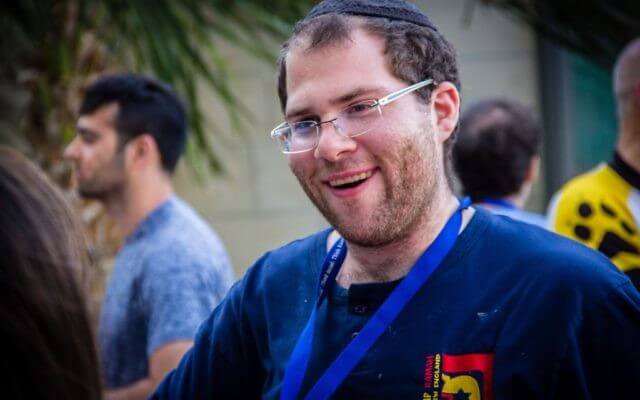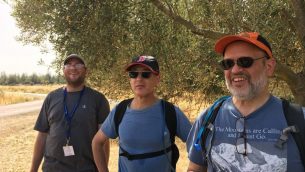Original Article Published On The Camp Ramah in New England
This year, as Ramah New England celebrates 50 years of the Tikvah Program, inclusive camping and the visionary leadership of Herb and Barbara Greenberg, it is worth acknowledging their equally impressive vision for vocational training within our Ramah camps. Herb Greenberg recounts, “I recall at early parent conferences that most parents were ecstatic about the outcomes of the summer and at the same time were expressing frustration and anguish that Tikvah had a cutoff age. So again, in the late 70’s we started the vocational training. The first efforts were one to one recommendations in the kitchen, bakery, mercaz and the gan. “
In my 15 years as director of the Tikvah Program at CRNE, we worked to expand the Voc Ed program. Participants learned jobs skills as well as what is known as “soft skills,” on the job behavior and etiquette required for success, and have been employed at such job sites as the Greenberg Guest House, chadar ochel, Voc Ed bakery, the gan and the misrad. We have also offered supported, salaried employment to some voc ed graduates as well as to others with disabilities.
Proudly, each Ramah camp with a Tikvah Program offers vocational training programs, known by such names as Ezra and Atzmayim, with some programs offering employment in local towns near camp–in coffee shops, grocery stores, day care centers, motels and children’s museums.
Even with the success of our vocational training programs, all families and Ramah programs still face the same issue the Greenbergs were dealing with in the 1970s—what happens when young adults “age out” of high school and camp? Many Voc Ed participants enjoy meaningful employment at camp—and are unemployed or underemployed in their home communities.
I have been concerned with parents not knowing what options exist when they age—a period commonly known as “falling off the cliff.” Thanks to the generous support of the Covenant Foundation, I have embarked on what has so far been a two-year journey to identify creative job sites and training programs for people with disabilities. While some major companies are to be commended for their programs which train and support people with disabilities (Our Tikvah grad, Aaron, who has been working at Walgreens distribution center in Connecticut is a great example!), many parents have had to be very creative—often starting their own programs and businesses. I have identified car washes (Rising Tide and Gleam), pizza stores (Smiling with Hope Pizza), t-shirt and sock companies (Spectrum Design and John’s Crazy Socks), hydroponic farming (Vertical Harvest), computer (Blue Star Recycling) — and even microbreweries (Perkiomen Valley Brewery). (https://howardblas.com/disabilities/job-sites/)
Perhaps the most exciting businesses are the businesses started by people with disabilities. Truly Scrumptious by Alexa, https://www.trulyscrumptiousbyalexa.com/, was started by our very own Alexa Chalup, a 14 year participant in various Ramah programs—inclusion, Seminar, Amitzim and Voc Ed. Who doesn’t enjoy custom made Oreos dipped in chocolate—with special logos and monograms?! Alexa was invited last week to share the story of her company and to share her creations with 125 attendees at the 3-day Covenant Foundation Project Directors meeting in Pearl River, New Jersey.
Alexa told the packed room at the conference, “In High School, I sold coffee and baked goods out of a Kiosk and enjoyed making people smile. It gave me an idea, that coffee would taste much better with a Truly Scrumptious Treat by Alexa. My passion lead to the creation of my very own business. At Camp Ramah, I met Howard 14 years ago as a first year camper. I’m now in their Voc Ed program, which is a combination of staff and life skills training. My jobs at camp included food prep in the kitchen and the bakery. Both taught me skills that helped prepare me for my business. The lessons I learned have really changed my life. My goal is to dedicate more and more time to Truly Scrumptious by Alexa as the business grows. Eventually, I would like to hire my friends, all with different special abilities, to grow my business. It’s important that everyone has a place to go every day, do what they love, have a wonderful social life with friends and keep teaching the world everyone can be productive and have a dream. I would like to thank Covenant Foundation for this opportunity to tell my story. Through your support of Howard, his programs have taught me skills and confidence that made my dream come true by starting my own company, like anyone else.”
We thank the Greenbergs for their visionary leadership, Ramah for continuing their mission and to funders like the Covenant Foundation for their support. We hope Alexa’s story continues to inspire others!




